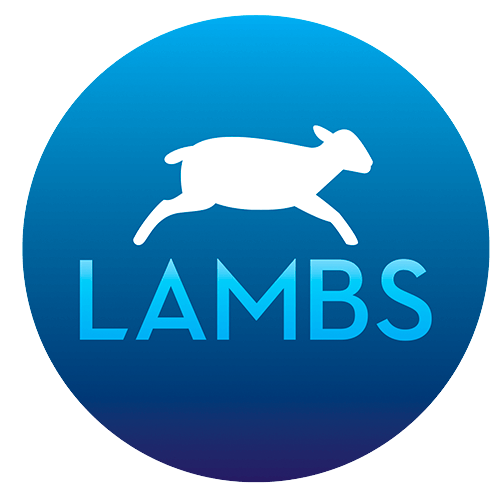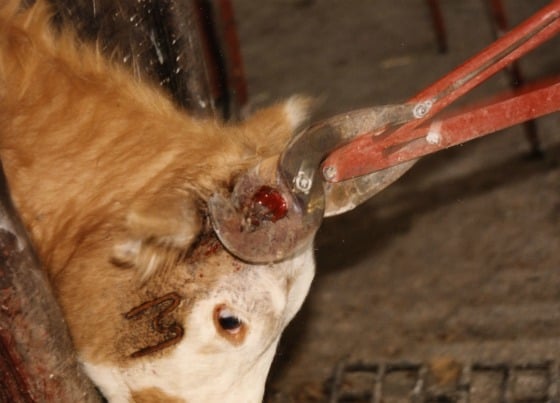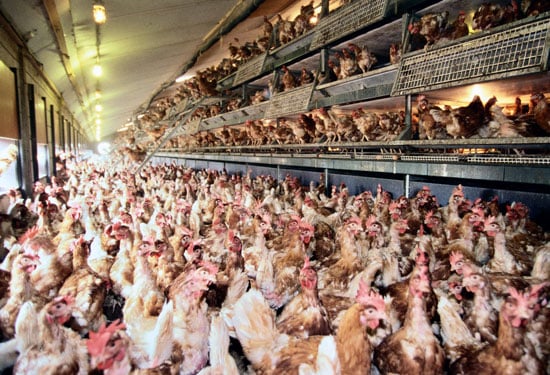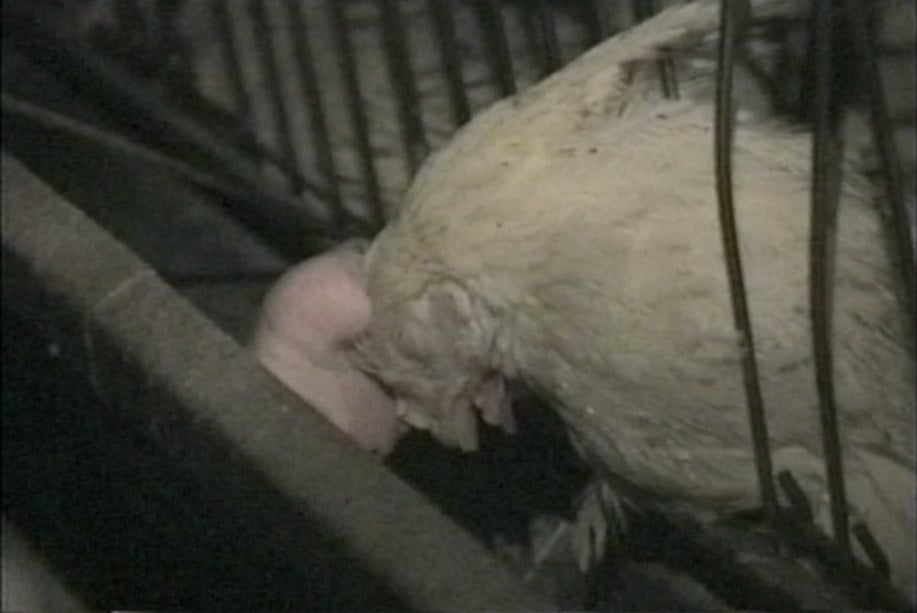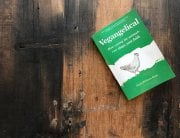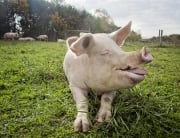As people become more aware of the horrors of factory farming, companies are responding by labeling their products “all-natural,” “free-range,” “free-roaming,” or “organic.” But these labels are purposely misleading. The companies use these labels as a way to convince consumers like you that the animals they raise are treated compassionately—but this couldn’t be further from the truth.
Mutilation
Most “free-range” animals are still mutilated, including by having their sensitive beaks, tails, ears, and horns cut or burned off—all without painkillers.
Severe Crowding
Companies want consumers to believe that products labeled “free-range” or “free-roaming” are derived from animals who spent their short lives outdoors, enjoying sunshine, fresh air, and the company of other animals. Labels (other than “organic”) on egg cartons are not subject to any government regulations, and the U.S. Department of Agriculture (USDA) doesn’t regulate “free-range” or “free-roaming” claims for beef products.
The USDA requires that “free-range” animals have access to outdoor areas, but there’s no provision for how long they must spend outdoors or how much room they must have. The Associated Press reported that the USDA’s regulations don’t “require the birds to actually spend time outdoors, only to have access.”
Because of genetic manipulation, even if an outdoor area is available, many chickens don’t take advantage of the so-called “access.” One farm expert explains that chickens raised for meat in the United States are not bred for “mobility”—they’re bred for “hogging down food.” This expert pointed out that because the birds often can’t walk, they rarely venture far from the feed trough.
‘Organic’ Means Nothing for Animal Welfare
Meat, poultry, eggs, and dairy products labeled “organic” must come from animals who are “given no antibiotics or growth hormones.” The USDA cautions consumers that the “organic” label should not be confused with or likened to “natural” or any other label, and it “makes no claims that organically produced food is safer or more nutritious than conventionally produced food.”
Like the “free-range” label, the “organic” label does not guarantee that animals were treated any better than animals raised on conventional factory farms.
Killing Mother Hens
After two years spent in hellish conditions, hens used for eggs are exhausted and their egg production drops. These “spent” hens are shipped to slaughterhouses, where their fragile legs are forced into shackles and their throats are cut. By the time they’re sent to slaughter, roughly 29 percent of them are suffering from broken bones resulting from neglect and rough treatment. Their emaciated bodies are so damaged that their flesh can generally be used only for chicken noodle soup, companion-animal food, or “canned, boned, and diced” meat, much of which goes to the National School Lunch Program.
Baby Chicks Are Ground Up Alive
Even on so-called “humane” egg farms, male chicks are deemed useless because they can’t produce eggs. The egg industry’s solution? Toss millions of them into trash bags to suffocate or throw them into high-speed grinders called “macerators” to be torn apart while they’re still alive.
What You Can Do to Help
Because there are so many different labels with inconsistent definitions and regulations, it’s difficult to determine which products are the most “humane.” Since none of the labels applies to transport or slaughter and none prohibits bodily mutilations such as debeaking, tail-docking, ear-notching, and dehorning, the worst cruelty continues to be completely unregulated.
The only truly humane and Christ-like option is to go vegan and leave animals off your plate.
Order a FREE vegan starter kit today.
